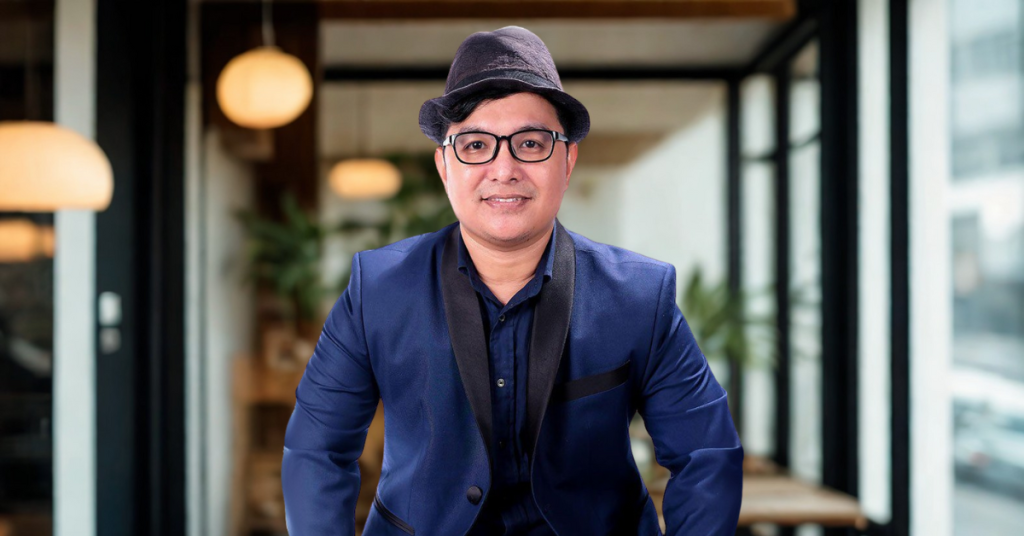Jesse James Cooley Llamado didn’t grow up learning about compound interest or investment returns. He grew up hearing one word on repeat: kulang.
“Every day in our household, it was ‘kulang,’ ‘bitin,’ or ‘utang,’” he told Financial Adviser PH. “Those were the daily words I heard, and they shaped how I saw money—always lacking, always out of reach.”
Raised by a single mother who shouldered the family’s financial burden alone, Jesse internalized early on that money was hard to earn and harder to keep. He believed he had to work twice as hard just to stay afloat. “There was always this invisible wall that made me feel I wasn’t enough,” he said.
But what began as a mindset rooted in survival would later evolve into a mission to teach others how to break free from the same scarcity traps.
The Book That Sparked a Shift
Jesse’s transformation began in college when a friend introduced him to Rich Dad Poor Dad by Robert Kiyosaki. “That book was a turning point,” he said. “It showed me that financial freedom was even possible. I had never heard that term before.”
Through the book, he learned that money is not the goal—but a tool. “The more I grew my mindset, the more I realized that having more money is just the output of that,” he said.
Still, letting go of the old beliefs wasn’t easy. “When you grow up hearing ‘walang pera,’ you begin to live like it’s true. And then you surround yourself with others who think the same. You have to be intentional about unlearning it.”
From Paycheck to Purpose
Like many fresh graduates, Jesse started with just enough. His first salary was ₱10,000—a month’s pay that had to cover rent, food, and even social life. Saving wasn’t even part of the conversation. “You just survive,” he said. “That’s it.”
He admits that despite having a finance and accounting background, managing his own money was a different story. “You can be great at analyzing other people’s finances, but your own? That’s emotional. That’s personal.”
The change came when he enrolled in the Registered Financial Planner (RFP) program—while still broke. “That was a leap of faith. But I knew I had to start fixing my behavior,” he said.
It wasn’t just about the curriculum. “The structure helped. I learned to track my spending, do personal income statements, and set real goals,” Jesse said. “But more than that, it was about discipline. That was the hardest part to build.”
A Mission Bigger Than Money
Jesse didn’t take the RFP program just to get a license. “At first, I wanted to be like Randell Tiongson,” he said, referring to the well-known personal finance advocate and RFP director. “But eventually, I realized it wasn’t about the title—it was about becoming someone who could help others.”
While still rebuilding his own finances, Jesse began offering free financial plans to friends. “I just asked them to buy me coffee in exchange,” he said. “Because for me, money should be a byproduct of the value you give.”
That mindset would eventually lead him to teach financial literacy across schools and companies—from university belt classrooms to provincial seminars. “Helping others became fulfilling. It gave me a sense of purpose.”
Why Discipline Still Wins
Today, Jesse believes the real key to wealth is discipline—not income.
“You can make a million pesos in a day, but if you don’t have discipline, you’ll lose it just as fast,” he said. “Discipline is what makes you pause, think, and ask: ‘Why am I spending this? What do I really want?’”
He credits his financial planning success not to flashy strategies but to the small, consistent habits he built over time. “The structure I made while I was broke—I still use it now that I’m married. It evolved, but the foundation is the same.”
Final Advice for Anyone Feeling Stuck
Jesse’s message is simple: your past doesn’t define your financial future.
“I thought I needed more money. But what I really needed was clarity. Clarity about who I was, what I wanted, and how money fit into that picture,” he said.
For those stuck in a scarcity loop, Jesse offers this reminder: “Your beliefs shape your behavior. And your behavior shapes your results. Change your mindset—and you’ll start to see money differently.”
![]()



